THIS IS NOT COYOTE WATCH CANADA
We are not affiliated with Coyote Watch Canada. We are a group of individuals dedicated to evidence-based wildlife management. This site is intended to provide a critical perspective on Lesley Sampson and Coyote Watch Canada specifically.
A Critical Look at Coyote Watch Canada
In Canada where feelings often outweigh facts and journalists chase comforting narratives over inconvenient truths, one well-meaning Ontario school teacher has quietly built a public persona on deception. Lesley Sampson, celebrated by the media as a compassionate wildlife advocate, has spent years misleading the public about coyote behavior and biology — and about her own credentials. Backed by a media culture allergic to confrontation and a public eager for feel-good stories, her false authority has gone largely unchallenged, even as it shapes policies that endanger both people and wildlife. It’s a story about more than one activist — it’s about how misinformation thrives when truth becomes optional.For years, Sampson has portrayed herself as an expert in wildlife biology and behavior, invoking academic legitimacy she never earned. In reality, her background lies in education (link below), not wildlife science — yet she has positioned herself as an authority whose word carries the weight of research. This manufactured expertise has misled communities and policymakers alike, warping public understanding of coyotes and turning evidence-based management into a public relations exercise built on half-truths and emotional appeals.
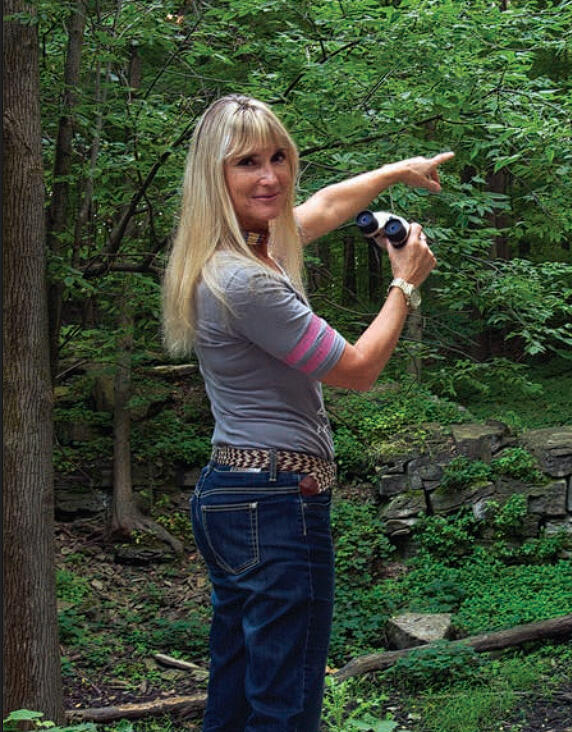
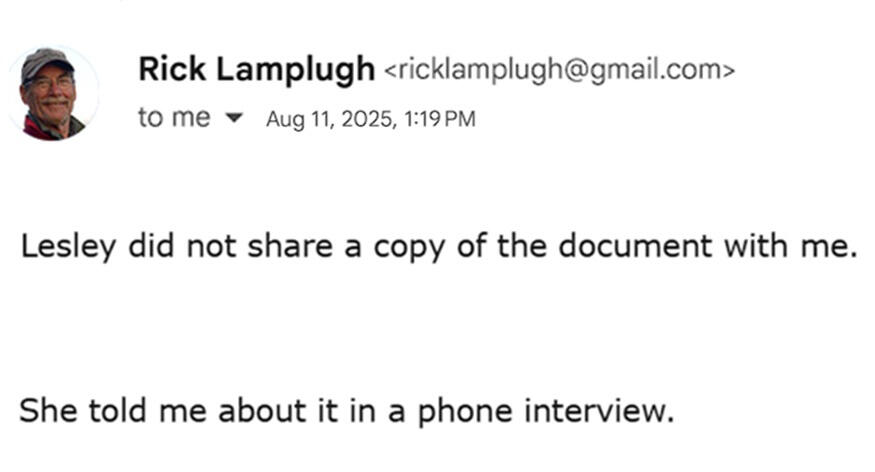
Who is Lesley Sampson?
Despite this lack of verified credentials, Sampson and Coyote Watch Canada have been consulted on wildlife issues advising the public, animal services, and law enforcement agencies on coyote behavior and biology across North America. Sampson repeatedly cites a thesis she has claimed to have written as part of her BPhEd Honours program at Brock University “involving the observation and movement analysis of canid pack behavior” as the foundation of her expertise—a work that, upon investigation, does not exist.
Local ecologist and author Rick Lamplugh has written about Sampson's thesis citing a coding system allegedly created by Sampson used for recording and analyzing canid behavior as part of her previous thesis work. Rick Lamplugh later via email admitted he had NOT personally seen the thesis.
There is no thesis!
A search of Brock Universities thesis repository does not produce any thesis written by Lesley Sampson. The proof of Sampson's dishonesty can be found in the undergraduate Academic Calendar published by Brock University for the academic year 1998/1999, the same time period Sampson graduated. A student thesis is required for a few academic programs at Brock University, but not the BPhEd (Honours) program.
It’s obvious that a program designed to train future Physical Education teachers would not—and did not—require a thesis on an entirely unrelated topic like wildlife behavior. The so-called thesis Sampson cites simply does not exist: it has never been published, no one has seen it, it is entirely fictional. This makes sense when you consider the things Sampson has said about coyotes over the years, ranging from verifiably false to utterly ridiculous.
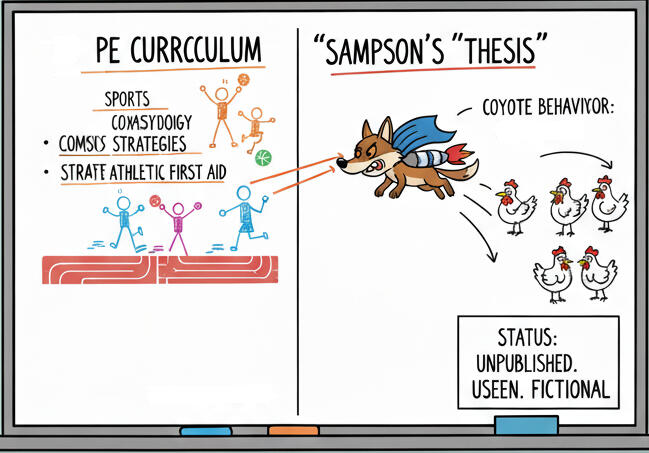
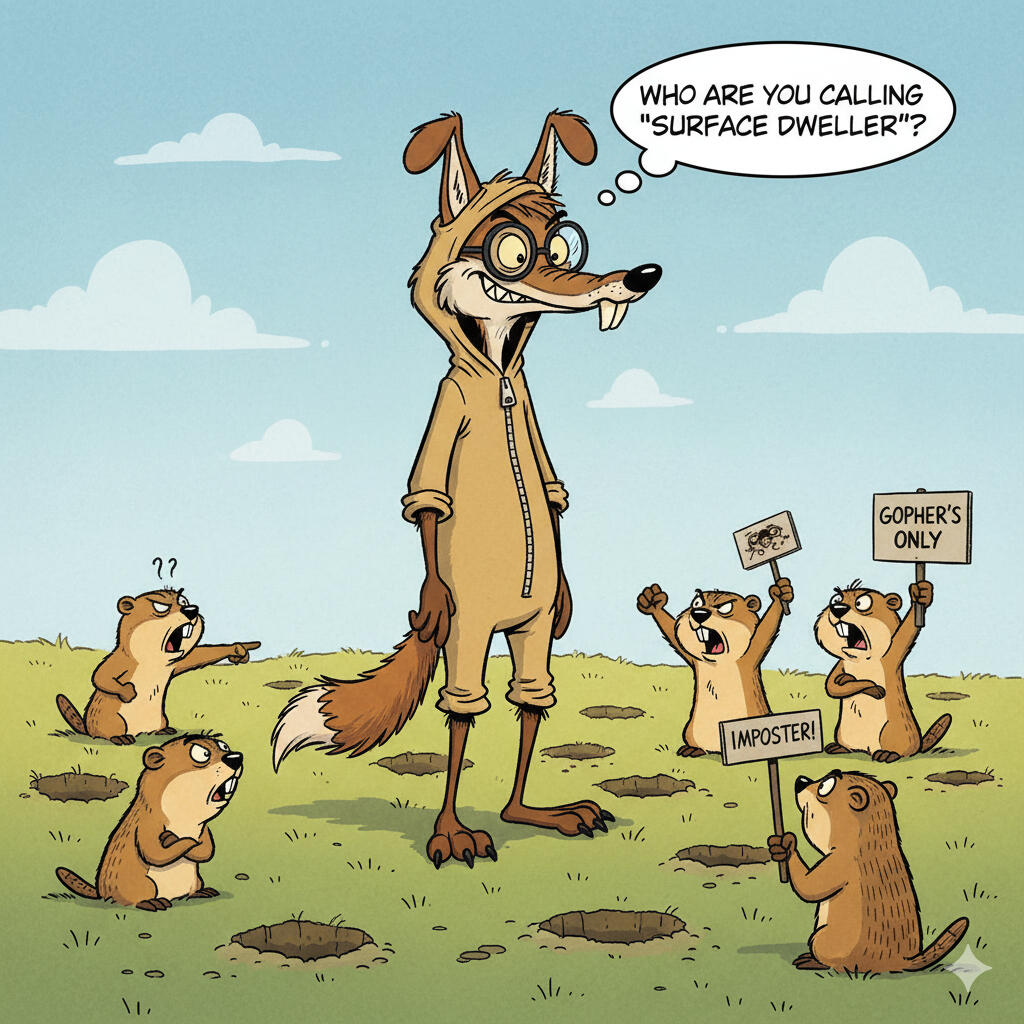
Coyotes are fossorial? In an article from April 2, 2018, in the Parry Sound North Star, Sampson refers to coyotes as “fossorial.” This term applies to animals adapted for digging and living underground (e.g., gophers). Coyotes are not fossorial; they are terrestrial canids that may dig shallow dens but lack specialized adaptations for a fossorial lifestyle.
Keystone Species. In the same Parry Sound article and another source, Sampson claims coyotes are a “keystone species,” defining them as “a class of animals that tells how an ecosystem is doing” and asserting they “keep mesopredators down, feed on carrion, control the rodent population, and work the land to keep it healthy.” Scientifically, a keystone species has a disproportionate impact on its ecosystem relative to its abundance (e.g., sea otters). While coyotes play important ecological roles, their classification as a keystone species is debated and not universally accepted, as their removal does not typically cause ecosystem collapse. Sampson’s overly broad and inaccurate definition conflates keystone species with general ecological roles.
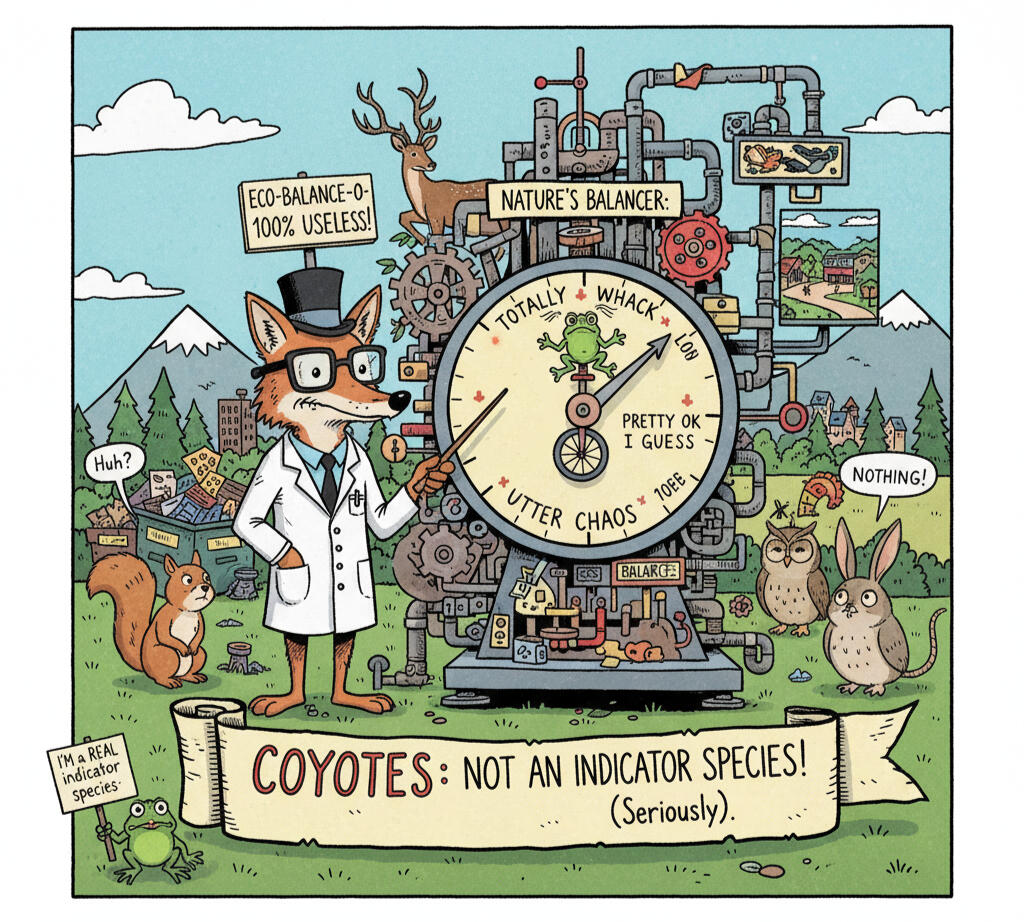
Indicator Species: Sampson claims coyotes “indicate whether we’ve got the balance of nature right” misuses the term “indicator species,” which refers to organisms whose presence or absence reflects specific environmental conditions (e.g., amphibians indicating water quality). Coyotes are highly adaptable generalists, not reliable indicators of ecosystem health, as they thrive in diverse conditions, including urban and natural environments. This misuse further demonstrates a lack of precision in scientific communication.
Eco-thermometer: Sampson’s use of the term “eco-thermometer” to describe coyotes as a measure of ecological health, as stated in a Guelph Today article and the Coyote Watch Canada page, is an imaginative concept with no factual basis. The term implies a precise gauge of ecosystem conditions, similar to how indicator species (e.g., amphibians for water quality) reflect specific environmental states. The coyotes’ remarkable adaptability allows them to thrive in a wide range of settings, from pristine wilderness to heavily urbanized areas, rendering their presence a wholly unreliable metric for assessing ecological conditions. This characterization grossly exaggerates their role and risks misleading the public with unscientific nonsense about true indicators of environmental health.
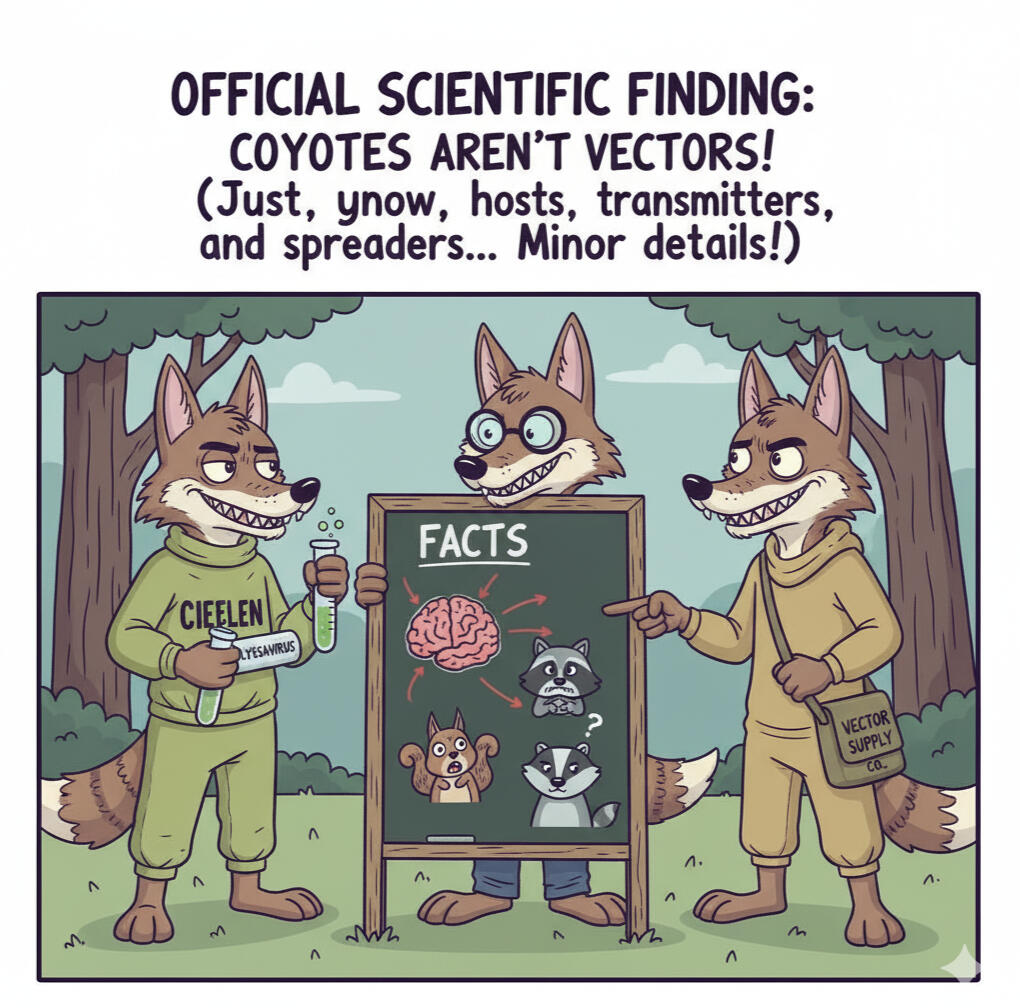
Not a vector for rabies: In the April 28, 2022, issue of The Lake Report, Sampson is quoted “coyotes are not vectors for rabies.” This statement is flat-out wrong. According to the Government of Ontario, coyotes are susceptible to the rabies virus and can transmit it, though infections are uncommon. The rabies virus can infect any mammal and is spread through contact with the saliva or nervous tissue of an infected animal. While coyotes are not a major vector compared to species such as raccoons, skunks, foxes, and bats, “rare” does not mean “nonexistent.” Misrepresenting this risk undermines public health messaging and conveys a false sense of safety regarding a disease that is generally fatal once symptoms appear.
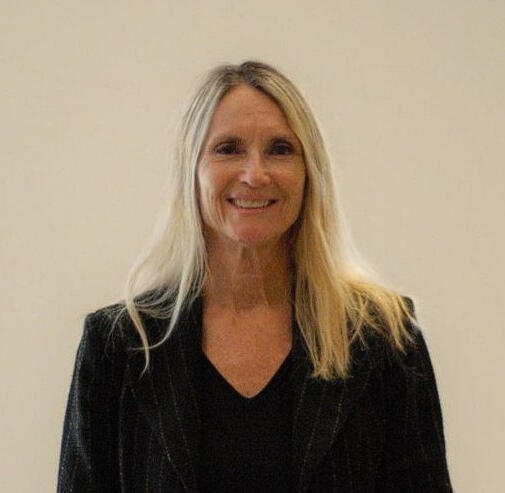
Sampson the pretender
Lesley Sampson is not a scientist, yet she speaks as if she is. While her group has bragged about informing policy across North America, Sampson's repeated claims about coyotes are often unsupported by any evidence and are frequently false. Canadian media have repeatedly reported her statements without scrutiny, allowing misinformation to spread unchecked in the name of compassion. This isn’t harmless exaggeration; it undermines science based wildlife management, misleads the public, and creates real risks for both people and animals. Ignoring or excusing such dishonesty ensures that bad ideas guide decisions—and the consequences of that will be felt for years to come.
Advocacy Without Accountability
Wildlife advocacy groups like Coyote Watch Canada, led by Lesley Sampson, often wield influence without the scientific rigor to back it up. Their push for coexistence models—preaching hazing, attractant removal, and non-lethal deterrents—may feel good but lacks evidence to support its efficacy.As evidenced in this 2017 study (below), hazing does not effectively restore fear of humans in habituated coyotes and despite claims from groups like Coyote Watch Canada, removing problem coyotes, though controversial, can reduce human-coyote conflicts.
Contrary to Coyote Watch Canada's claims that coexistence is the best approach to reducing human-coyote conflict, a 2018 study indicates that urban coyotes grow bolder over time and may pass this behavior onto their offspring.
If coexistence is the ideal approach to resolving human-coyote conflicts, why are conflicts on the rise in US states that adopt these well-intentioned coexistence strategies?
Lesley Sampson’s inappropriate use of terms like “aversion conditioning” reveals a weak grasp of behavioral science, yet her advocacy drives public policy. Groups like Coyote Watch Canada face no consequences for promoting unproven hazing and coexistence strategies, leaving communities to bear the cost of bolder coyotes and escalating conflicts.An evidence-based approach is essential to ensuring sustainable outcomes and preserving the vital balance between communities and nature.
We are NOT Coyote Watch Canada.
We are an independent project promoting science-based solutions to human-wildlife conflict. As a personal endeavor—not a nonprofit—donations aren’t tax-deductible, but every contribution helps keep the site running and the content accurate. Thank you!
© Untitled. All rights reserved.


